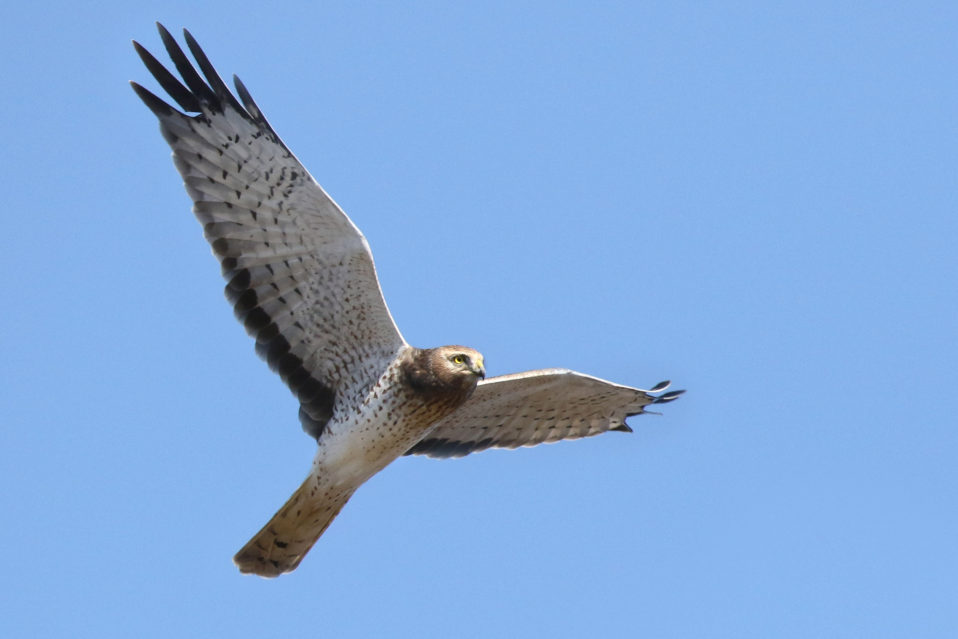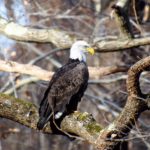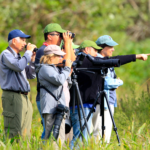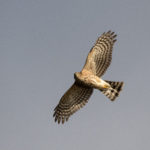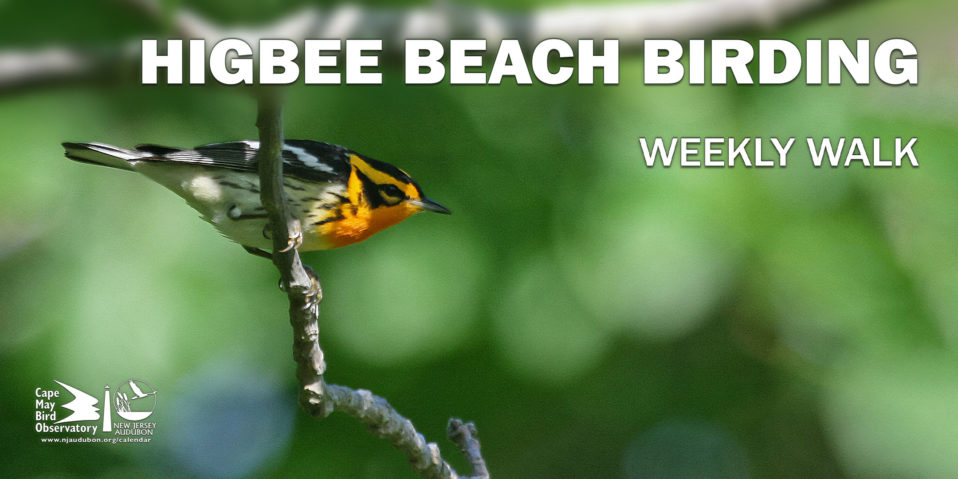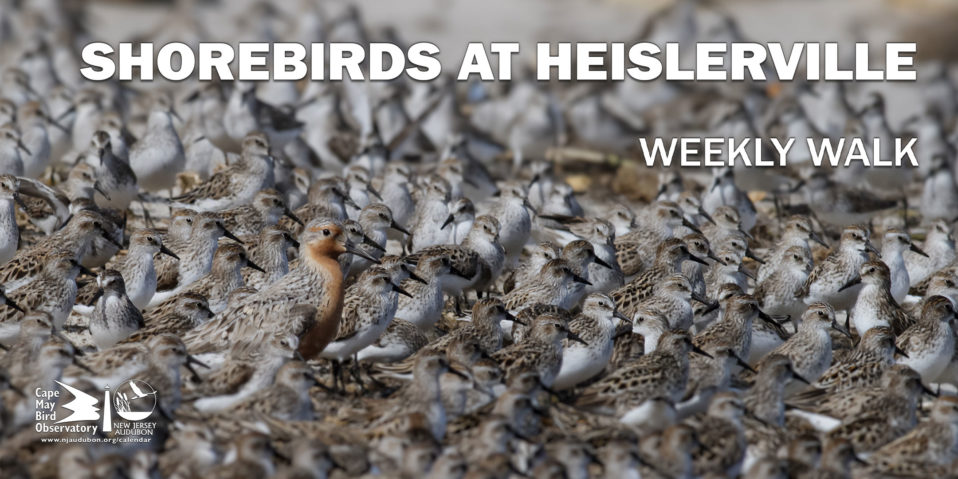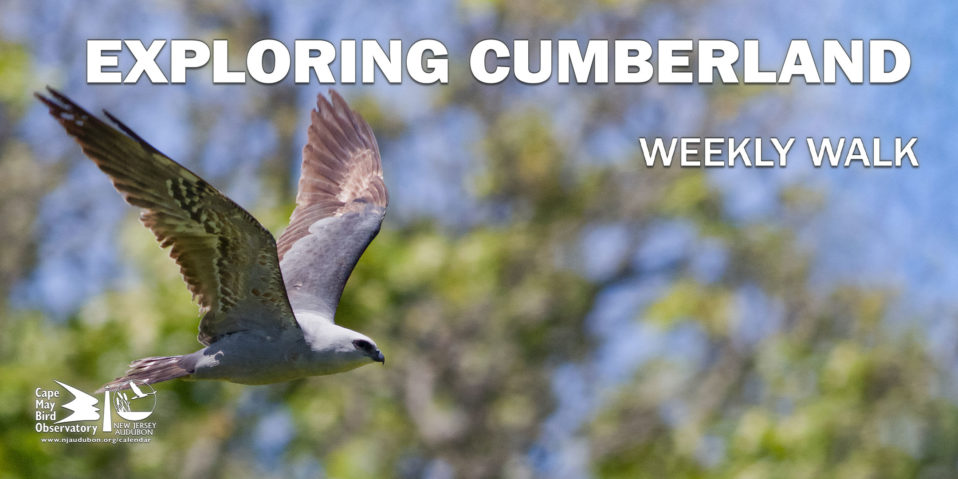It is such a pleasant experience to drive along the tidal marshes of coastal NJ at this time of year – the subtle browns, oranges and grays of autumn transition into winter, and the progression of leaves falling away from their summer perches opens up a landscape that is truly breathtaking. It is this mosaic of water, reeds, grasses and trees that harbors and sustains a surprising number and assortment of raptors during this season, making southern NJ an incredibly important component of these species’ survival.
-
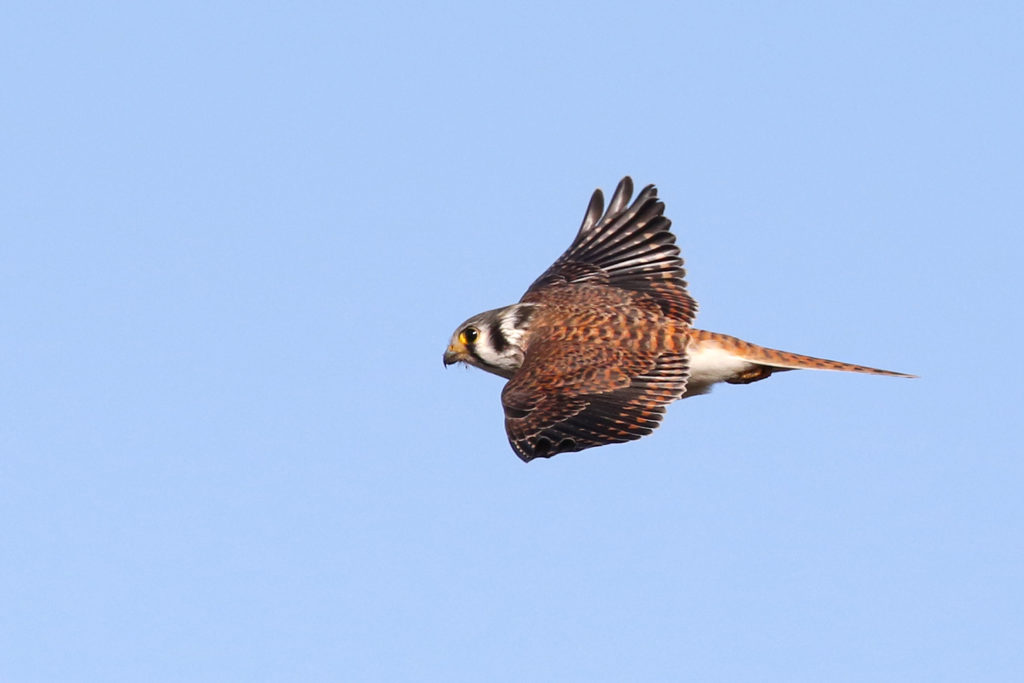
American Kestrel © Erik Bruhnke
For the past ten years, New Jersey Audubon’s Cape May Bird Observatory has conducted an official Winter Raptor Survey at 15 locations in the marshes along the Atlantic Ocean and the Delaware Bayshore, monitoring the presence and number of hawks, eagles, and owls found there in January and February. The main focus has been on the species most directly tied to the marsh habitat – Northern Harrier, Bald Eagle, and Short-eared Owl – but also includes residents like Red-tailed Hawk and Great Horned Owl, visiting Rough-legged Hawk, Golden Eagle, American Kestrel, Merlin, Peregrine Falcon, and even Snowy Owl, and those passing through, such as Sharp-shinned Hawk, Cooper’s Hawk, and Red-shouldered Hawk. An average of over 150 raptors has been counted each month on these surveys, highlighting the richness of the ecosystem and the continual need for conservation efforts against development and climate changes affecting water level rise.
-
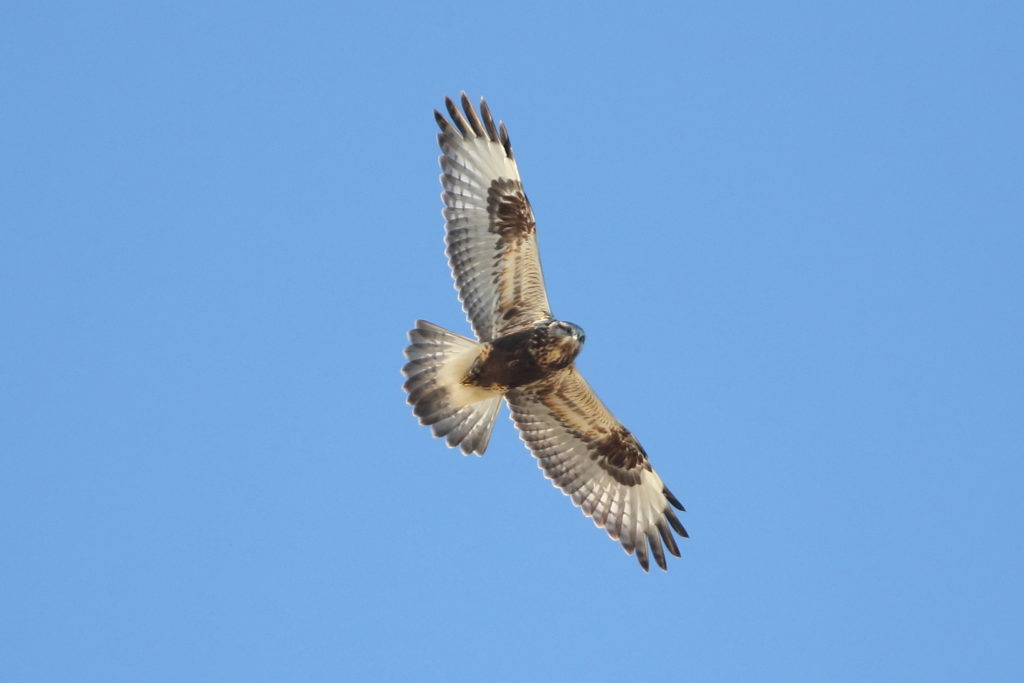
Rough-legged Hawk © Dustin Welch
Want to know more about these denizens of southern NJ or get involved? Check out the Winter Raptor Survey yearly report in CMBO’s annual publication of record – The Peregrine Observer (available as part of a CMBO membership or for purchase at the Northwood Center in Cape May Point) or better yet, immerse yourself in their world and join Program Director Brett Ewald on our Cape May School of Birding Workshop January 5 & 6 – an in-depth looks at their lives, identification, and habitat use – through direct observation at a number of the premier viewing destinations and a classroom session. For details and to register, go to: Cape May School of Birding
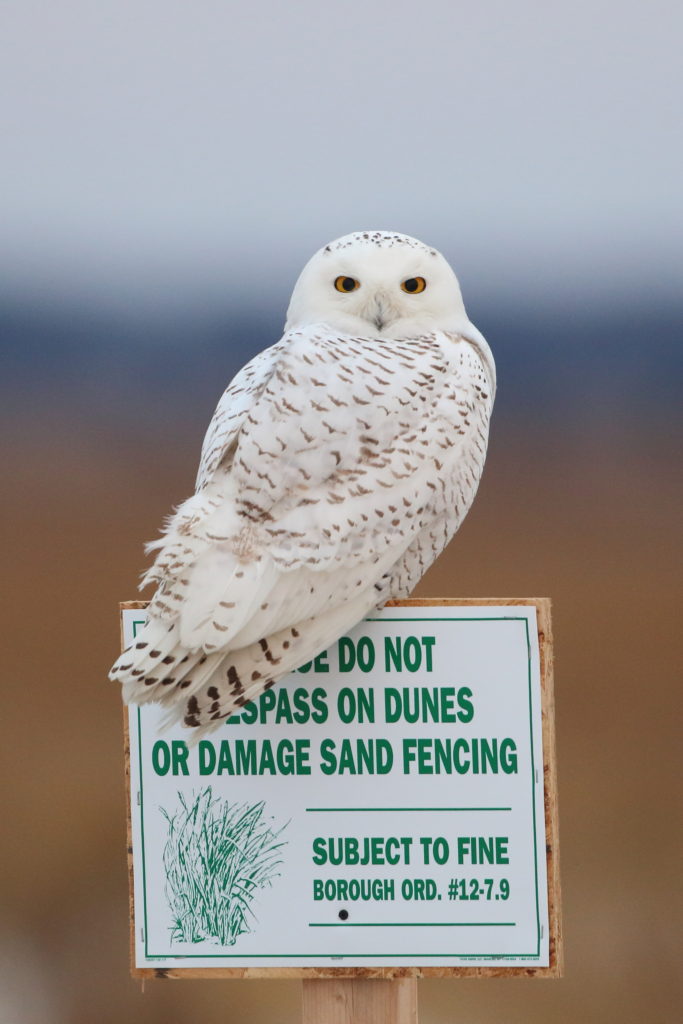
Snowy Owl © Dustin Welch




